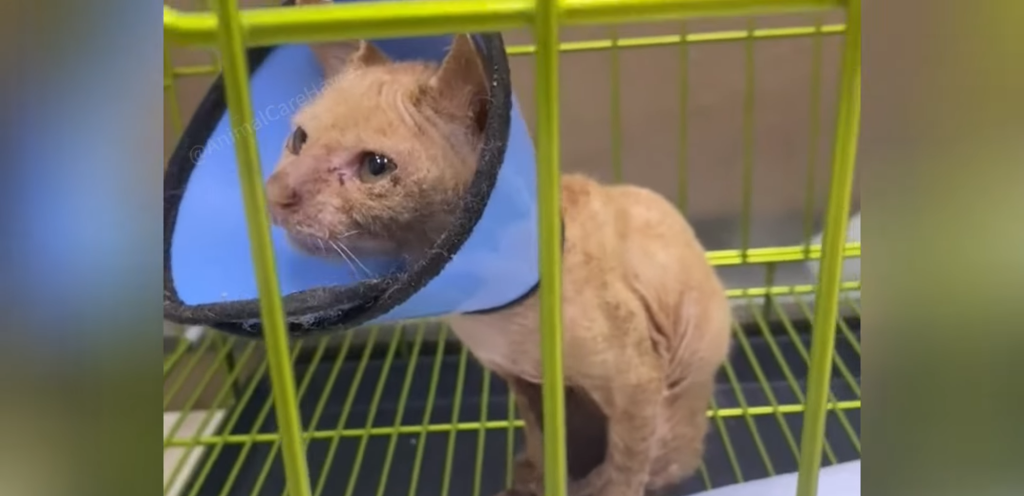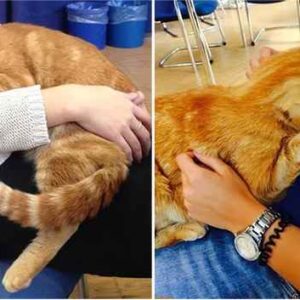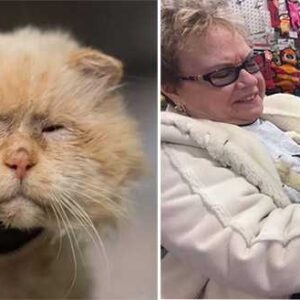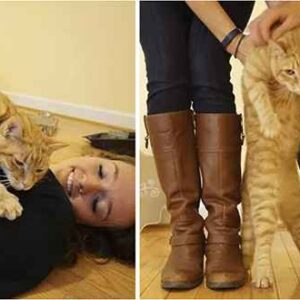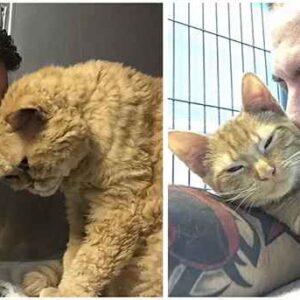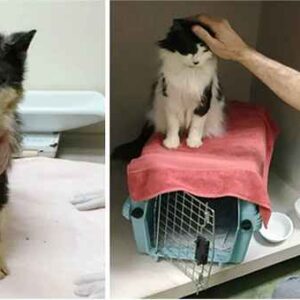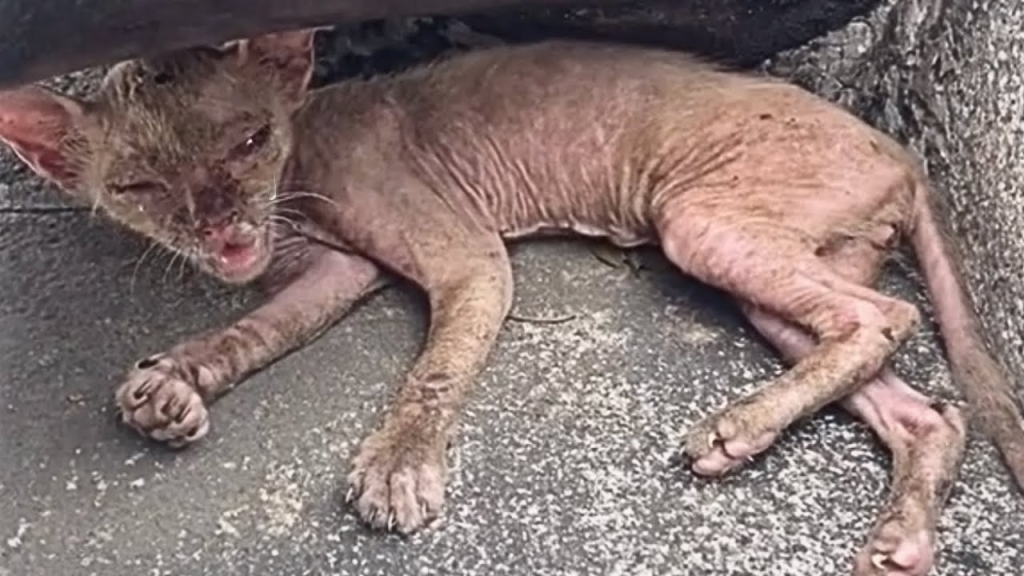
One day, while walking past a quiet staircase, a faint meow caught my attention. There, on the steps, was a tiny kitten. She looked so small, so frail, and desperately weak. Her cries for help were barely audible, as if she had been calling out for days with no response. It was clear that she hadn’t eaten in a long time, and her fragile body spoke of her struggle. I imagined her dreaming of endless food, unwilling to wake up to the harsh reality of her hunger.
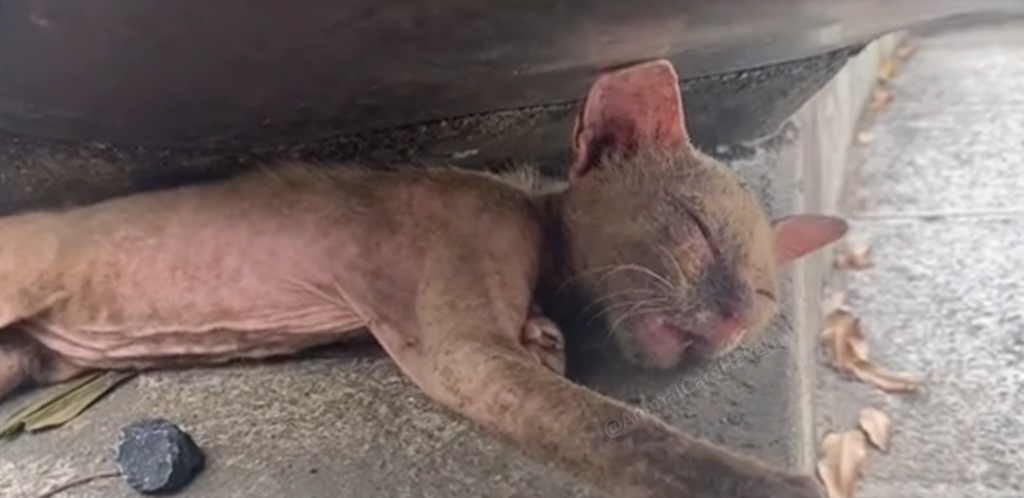
I quickly poured out some cat food, and she devoured it hungrily. Watching her eat with such urgency broke my heart, knowing how long she must have been without sustenance. I gave her some water, and after her meal, she curled up on the steps, exhausted but momentarily content. Looking at her small, frail body, I realized she wouldn’t survive the night without help. That moment sealed my decision—I had to rescue her.
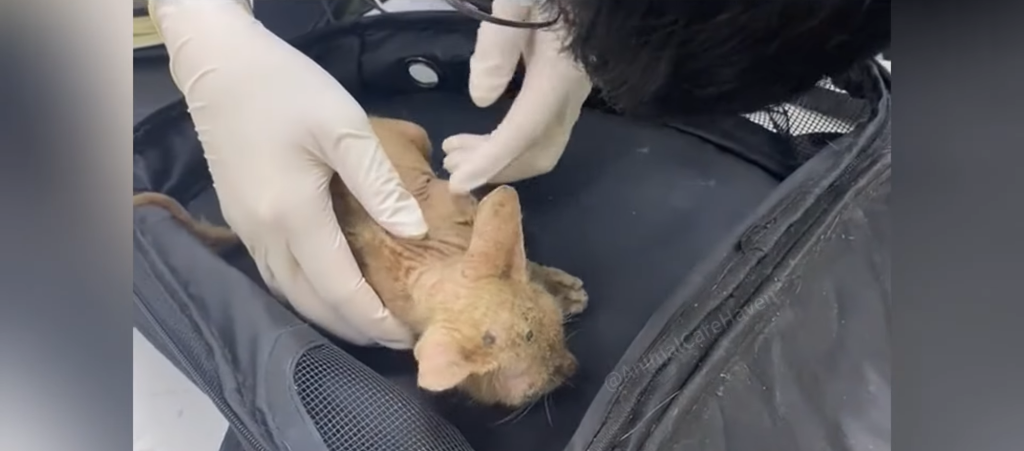
The next day, I took the kitten to the vet. The medical staff examined her carefully and confirmed what I feared: she was severely malnourished, suffering from dermatitis, and had a bacterial infection. The doctor prescribed medication, and I left the clinic with a mix of hope and worry, determined to give her a chance to recover. On the third day, she seemed cleaner and slightly more comfortable. I applied the prescribed medication and placed a protective headgear on her—a size far too large for her tiny frame.
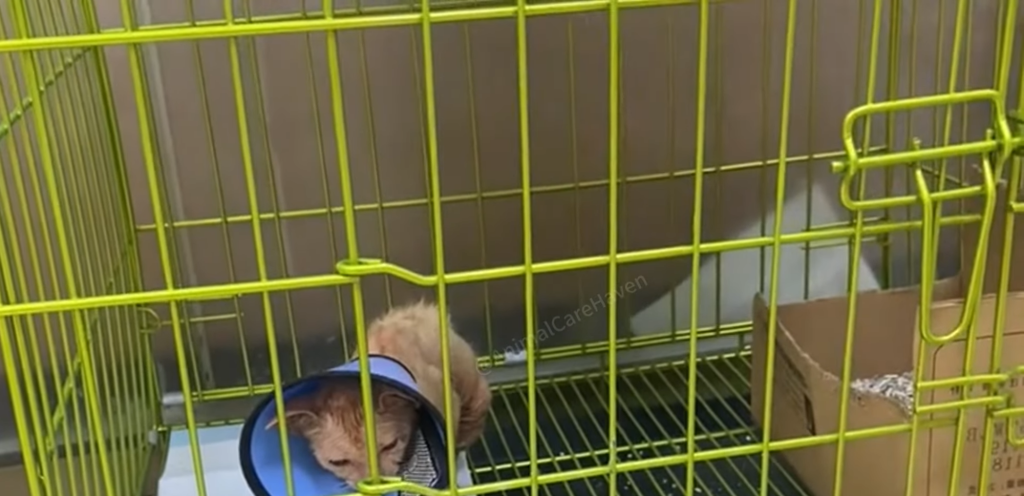
Her behavior surprised me. Despite everything, she remained calm and cooperative, as if she understood we were trying to help. Tears welled up as I thought of how strong she was, even in her vulnerable state. I purchased cat food and nutritional powder, fixated on helping her heal. By the fourth day, her condition had visibly improved. She didn’t resist when I petted her and even seemed to enjoy the affection.
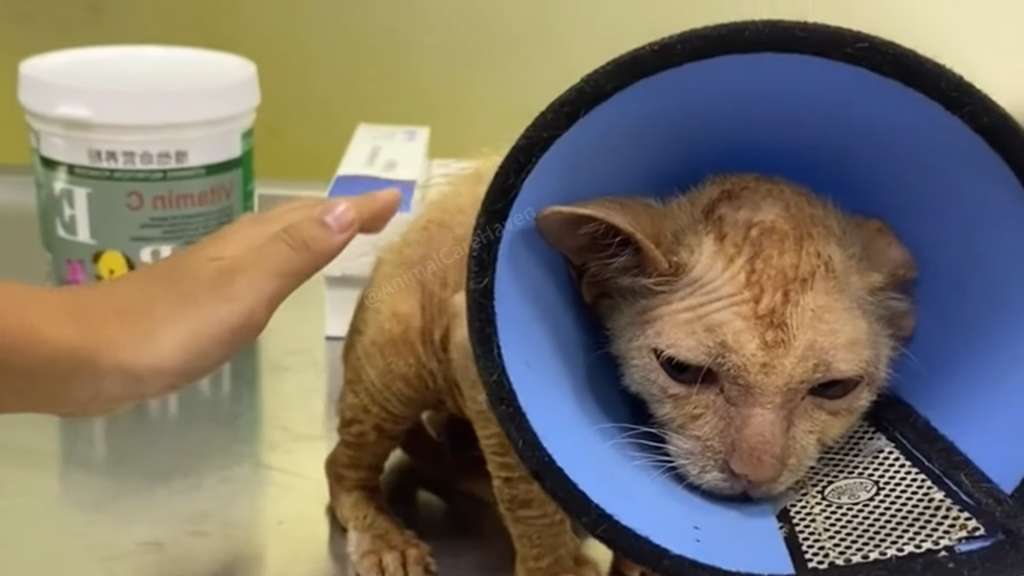
Her severe fungal infection was also healing, but the doctor advised that she would need at least 1-2 months of care. Despite her improved appetite, she remained thin from long-term malnutrition. However, she ate and drank with such eagerness that I felt reassured by her growing strength. On the seventh day, her demeanor had transformed. She no longer seemed anxious or wary but relaxed and playful. Her meows were now clear and strong, a stark contrast to the feeble cries from our first encounter.
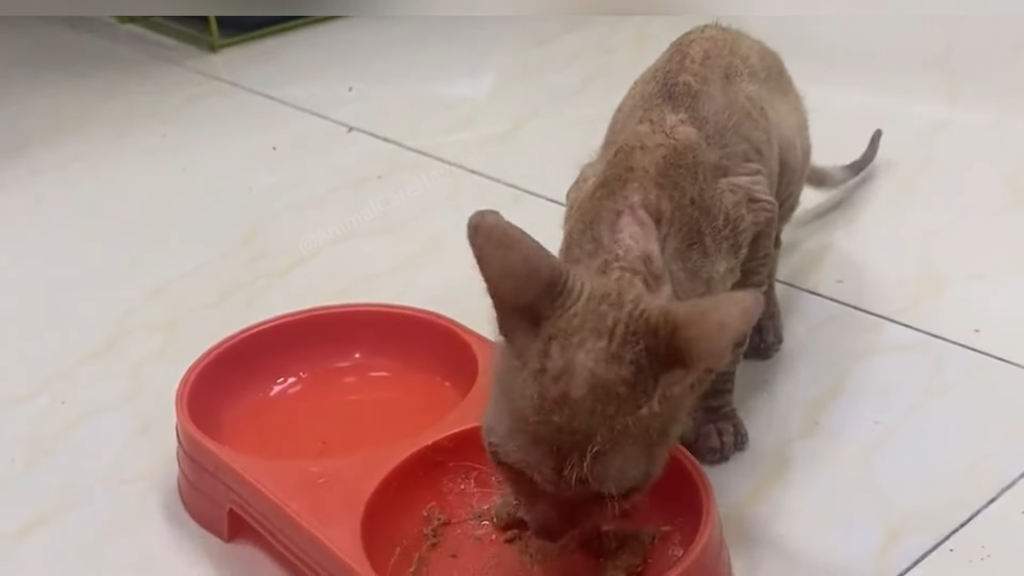
Over the next week, the kindness of strangers poured in. People sent toys, food, and even thoughtful messages of support. These gestures of generosity warmed my heart, reminding me that there is still kindness in the world. By the fifteenth day, the kitten had recovered enough to come home with me. Her fur was beginning to grow back, and she was starting to look like the healthy, playful kitten she was meant to be.
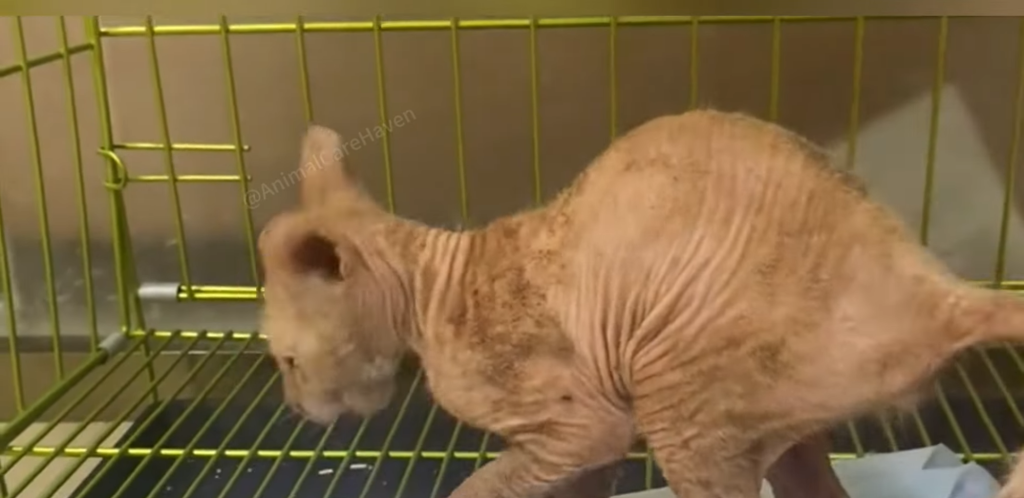
I trimmed her nails, gave her a warm bath, and dried her gently with a towel. She remained calm throughout, her trust in me evident. With each passing day, she continued to surprise me with her resilience and sweetness. Her favorite toy—a big duck sent by a caring donor—became her comfort item. As she fell asleep beside it, I felt a deep gratitude for the opportunity to help this little life.
